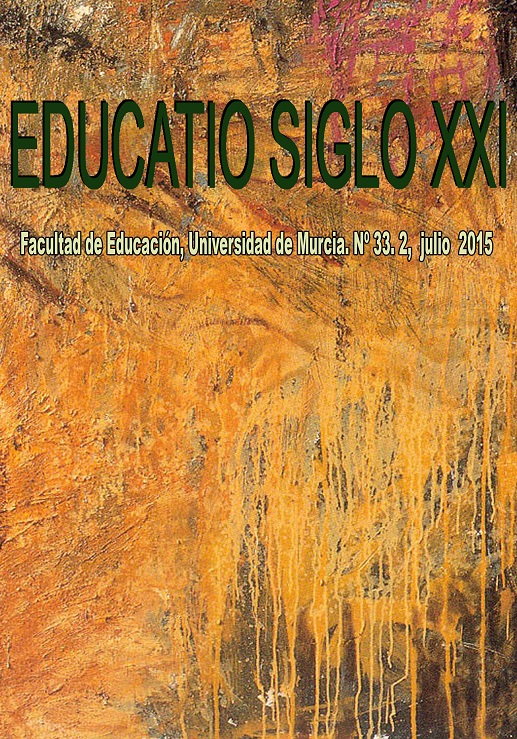Program for sensitivity improvement (SIP) and the interaction skills of the Infant Education educator
Abstract
The relevance of professional development aimed at satisfying children’s developmental needs and guaranteeing quality education has achieved a great theoretical and empirical support. According to recent research, among the variables that influence early development care takers’ interaction skills are especially relevant. Furthermore, diverse meta-analysis suggest a type of training based on the analysis of practice through video-feedback. However, very few training programs have applied this methodology in Spain so far. That is why the objective of this study was to analyse the influence the training program for sensitivity improvement (SIP) has on the interaction skills of Infant Education educators. 14 care-takers participated in the research, divided into two groups. The experimental group (n =7), who were trained, and the comparison or control group (n =7). Results show that once the PMS training program had taken place, the educators showed greater sensitivity and verbal stimulation conducts. Besides, in comparison to the teachers who were not treated not undergo the treatment, they obtained higher scores in sensitivity and language stimulation. Despite the fact that the research should be replicated with a bigger sample in the future, the results obtained allow to state that PMS is a type of training that could be effective for Infant Education teachers’ educational practice.
Downloads
-
Abstract902
-
PDF (Español (España))659
Original work publishes in this journal is subject to the following terms:
1. Murcia University Press (the publishing house) holds the copyright of the publishes work, and favours and allows their reutilization under the use license stated in point 2.
© Servicio de Publicaciones, Universidad de Murcia, 2015
2. Work is published in the electronic edition under a license (Creative Commons Reconocimiento-NoComercial-SinObraDerivada 4.0 España (legal text). They can be copied, used, disseminated, transmitted and publicly presented, as long as: i) authorship and original publication source is acknowledged (journal, publishing house and URL of the work); ii) are not used for commercial purposes; iii) the existence and specifications of this use license is stated.
3. Conditions for self-archive. Authors are allowed and encouraged to disseminate electronically the pre-pint (before review) and/or post-print (accepted for publication) versions of their work before their publication since that favours earlier circulation and dissemination resulting in an increased chance for the authors to be cited and for the work to reach a bigger share of the academic community. Colour: RoMEO: green.








